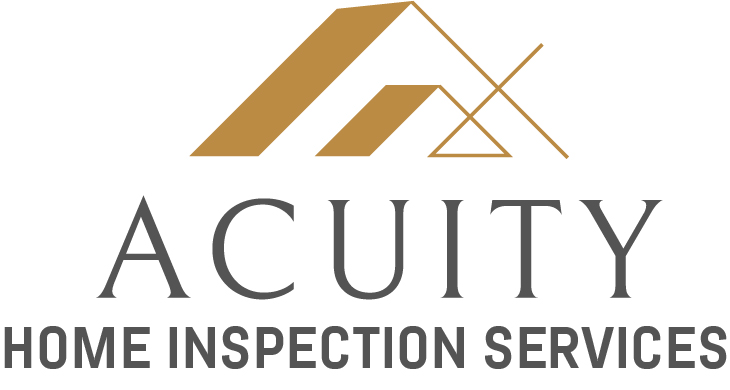-
10 Steps To Choosing Your Home Inspector
Choosing the right home inspector is one of the most critical steps in the home-buying process. A good inspection can provide peace of mind and protect your investment, while a poor one can lead to unexpected repairs and costly mistakes. To ensure you’re making an informed decision, consider these key factors when selecting a professional home inspector.
1. Select A Home Inspector That Is Fully Licensed and Insured
Licensed home inspectors in Ohio and Kentucky meet rigorous state standards, including education, examinations, and background checks. Ohio even requires real estate agents to recommend only licensed inspectors, as outlined in Ohio Revised Code Section 4735.22. Licensed inspectors are also required to inspect homes according to Ohio Standards of Practice, ensuring consistency and thoroughness, whereas unlicensed inspectors are not bound by such standards.
Pitfall: Unlicensed inspectors may lack training, miss issues, or leave you liable for mistakes. They are not bound by a Code Of Ethics and not required legally to inspect to any regimented standards.
Pro Tip: Verify licensing and insurance through state regulatory bodies to ensure reliability.
Is your home inspector licensed? Use this link to find out: elicense3.com.ohio.gov
2. Professional Membership
Look for inspectors certified through organizations like InterNACHI or ASHI. Certification ensures inspectors have undergone extensive training and adhere to high ethical and professional standards.
Pitfall: Uncertified inspectors may lack the skills to identify critical defects, risking your investment.
Pro Tip: Always confirm certifications and ask about ongoing education to ensure expertise.
3. A+ Rating with the Better Business Bureau
An A+ rating from the BBB reflects a strong track record of ethical business practices and customer satisfaction. It’s a reliable indicator of professionalism.
Pitfall: Poor ratings or unresolved complaints suggest inconsistent service.
Pro Tip: Check the BBB website for ratings and customer reviews before making a decision.
4. The Buy Back Guarantee
A Buy Back Guarantee, like the one offered by some InterNACHI inspectors, protects you if defects are missed. If you’re unhappy with your home after purchase due to something missed in the inspection, they’ll buy it back, no hassle, and guaranteed in writing.
Pitfall: Without this guarantee, missed issues could result in costly repairs or an unsellable home.
Pro Tip: Choose an inspector who offers a written Buy Back Guarantee for peace of mind.
5. Highly Reviewed
Inspectors with numerous 5-star reviews on platforms like Google demonstrate consistent quality and reliability.
Pitfall: Ignoring reviews can lead to hiring an inspector with poor communication or inconsistent results.
Pro Tip: Look for patterns in reviews to assess reliability and professionalism.
6. Fast Turnaround Times
In a competitive market, time is critical. Professional inspectors deliver detailed reports within 24 hours to keep your transaction on track.
Pitfall: Delays in report delivery can jeopardize closing timelines.
Pro Tip: Confirm report delivery times before scheduling an inspection.
7. Comprehensive and User-Friendly Reports
Reports should be clear, detailed, and actionable, with annotated photos and videos to enhance understanding.
Pitfall: Vague or overly technical reports can leave you uncertain about a home’s condition.
Pro Tip: Request sample reports to evaluate the inspector’s reporting style.
8. Cutting-Edge Technology
Modern tools like drones, crawlspace crawlers, and thermal imaging ensure thorough and accurate inspections.
Pitfall: Inspectors without advanced tools may miss critical issues, such as roof damage or hidden moisture.
Pro Tip: Ask about the technology your inspector uses and how it enhances their assessments.
9. Local Expertise
Local inspectors are more than just familiar with the area; they are invested in their communities. They often know local builders and tradespeople, which can provide valuable insights and resources during the inspection process. Additionally, local inspectors are more likely to offer follow-up inspections at lower fees or no charge, demonstrating their commitment to client satisfaction and long-term relationships.
Pitfall: Choosing an inspector unfamiliar with the area may result in less personalized service and missed opportunities for valuable local insights.
Pro Tip: Support local inspectors who not only understand your community but are also dedicated to building lasting professional relationships.
10. Specialized Services
Inspectors who offer radon testing, HUD compliance inspections, and wood-destroying insect inspections (including termites) provide added value and versatility.
Pitfall: Overlooking specialized services may lead to future problems, such as termite damage or health risks.
Pro Tip: Confirm the availability of specialized services when booking an inspection.
Conclusion
Choosing a home inspector is a vital step in safeguarding your investment. By selecting a licensed, certified professional who uses advanced tools and offers comprehensive services, you’ll ensure a smooth and informed home-buying process. A thorough inspection today can save you from costly surprises tomorrow.
LICENSED HOME INSPECTOR SERVING ADAMS, BROWN, CLERMONT, HIGHLAND, HAMILTON and MASON (KY) COUNTIES




